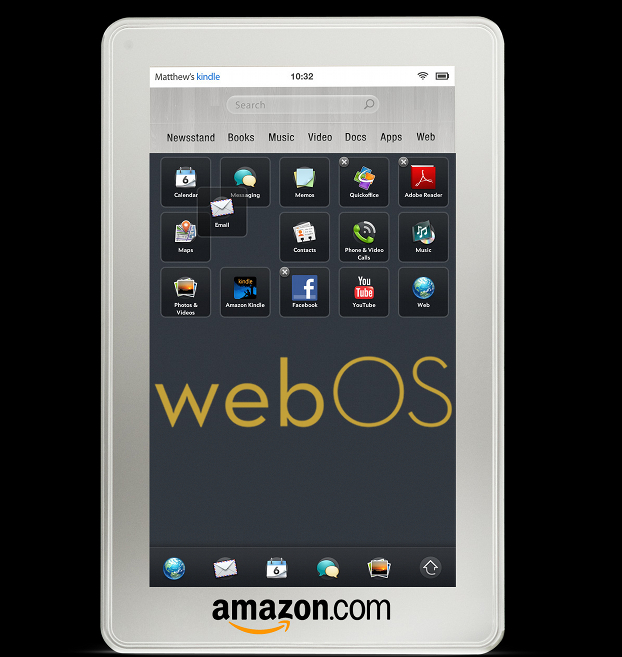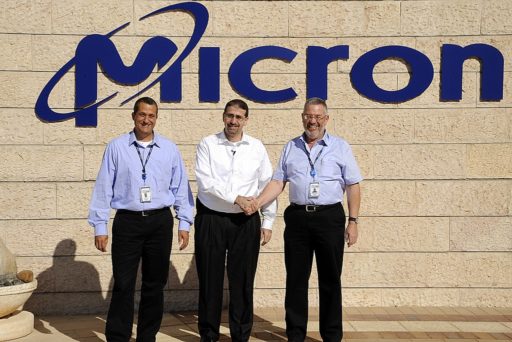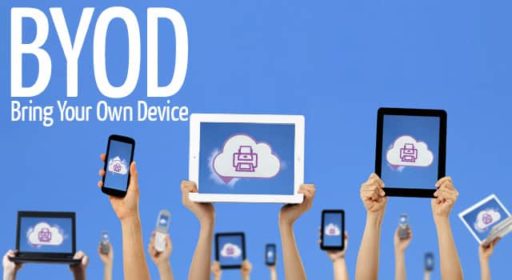Amazon is close to finish a deal to purchase webOS from HP and Amazon would be a good match for webOS. It would be very simple to dismiss these rumors as pure flights of fancy, since Amazon only just announced their first Android-based tablet product, the Kindle Fire this week and it seems mutually exclusive to have both WebOS and Android development in Amazon’s stable. Both WebOS and Android are based on the Linux kernel and various other open source libraries and the older generations of WebOS also incorporated Java-based technologies………………
Amazon is considering buying the WebOS mobile operating system from the struggling Hewlett-Packard in a move to nab an OS of its own and to gain some mobile tech patents as well and Amazon officials were unavailable for comment on the rumors Friday. Amazon can also integrate Synergy’s messaging services with the Activesync protocol (Exchange) on their Android/WebOS hybrid without any fear of litigation whatsoever. A well-placed source tells us that HP is currently looking to rid itself of Palm as soon as possible and after yesterday’s announcement of Amazon’s Kindle Fire tablet, no other company seems as fitting a home for Palm and its webOS software. It’s worth noting that former Palm CEO Jon Rubinstein, who now holds a vague product innovation role at HP’s Personal Services Group, joined Amazon’s board late last year. When asked for comment, an HP spokesperson said the company doesn’t comment on rumors and speculation. We’re still waiting to hear back from an Amazon representative. The Kindle Fire is powered by Android, but it’s been heavily customized by Amazon to the point where you can barely tell. By purchasing the remnants of Palm, Amazon would have free rein to redesign webOS to its own liking and it would be able to further differentiate its Kindle devices from the slew of Android tablets in the market. And even though HP has given up entirely on its webOS hardware business after the TouchPad tablet failed spectacularly, there’s still plenty of potential for webOS to power a successful device. Palm’s mobile software was praised for its slick multi-tasking capabilities, which could allow future Kindle Fire tablets to juggle games, movies and media with more finesse than Android. HP paid $1.2 billion for Palm in 2010, but Amazon will end up spending a fraction of that if the deal goes through. Given just how badly the TouchPad failed, HP will likely offer what’s left of Palm at a major discount, especially since Amazon woudn’t be interested in resuscitating now extinct webOS hardware. It also appears that HP has been eyeing Amazon for some time as a potential webOS partner. In an interview with This is my next in July, Rubinstein revealed quite a bit about having Amazon use webOS in its future tablets:
So, we’d like a partner that would allow us to expand the webOS ecosystem… There’s a variety of different sets of a characteristics to qualify as a good partner. I would say Amazon would certainly make a great partner, because they have a lot of characteristics that would help them expand the webOS ecosystem. As to whether there’s been discussions or not… that’s obviously not something I’m going to comment about.
[ttjad keyword=”kindle”]




